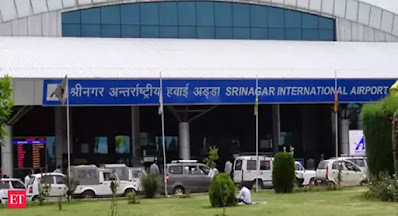Pakistan cannot stand independent journalism
Just a few blocks away from the Inter Services Intelligence (ISI) Headquarters, Islamabad’s Sector G-6 is one of the most heavily-guarded areas of the Pakistani capital. It was here, in broad daylight yesterday, that senior Pakistan journalist Matiullah Jan was abducted by more than half a dozen men, many of them armed and in uniform. ‘Mati sahib,’ as he is called in the journalistic circles, was to appear in the Supreme Court today in a contempt case filed against him. The notice was served as he had allegedly tweeted some painful words against Pakistani judges and the judiciary on July 10. Jan has also been a huge critic of Pakistan’s deep state. Pakistan News
Luckily, the entire act of abduction was captured in the CCTV cameras and the footage went viral on social media within a few hours. Huge outrage followed, the media joined in and many leading politicians ripped apart the Imran Khan-led government for targeting journalists and subjecting them to “ISI-orchestrated” harassment campaigns.
Caught on camera—and thus also in the proverbial eye of the storm, unexpectedly—Jan’s abductors finally released him at an undisclosed location late last night after driving him blindfolded around Islamabad for more than 12 hours.
His family and friends heaved a sigh of relief that Jan didn’t meet the same fate as many other captured, tortured and killed journalists in Pakistan over the last few years.
“Pakistani media, which has a long tradition of being very lively, has become a priority target for the country’s ‘deep state,’ a euphemism for the constant manoeuvring by the military and Inter-Services Intelligence (ISI), the main military intelligence agency, to subjugate the civilian executive. The influence of this military ‘establishment,’ which cannot stand independent journalism, has increased dramatically since Imran Khan became prime minister in July 2018. There have been many cases of brazen censorship in which the military have used a number of methods for exercising pressure. Journalists who dared to broach subjects deemed off limits by the military have been subjected to ISI-orchestrated harassment campaigns,” says Press freedom watchdog Reporters Without Borders.
No wonder the country where killings and kidnappings of journalists and activists have become a routine affair now ranks 145th out of 180 nations in the World Press Freedom index.
Earlier this month, India Narrative had revealed how the deep state is also targeting journalists living abroad.
A confidential memo issued by the Interior Ministry dated June 18 accused six journalists—five Pakistanis and an Afghan citizen—alleged to be “involved in various activities in Europe and America which are seriously damaging Pakistan’s foreign interests abroad.”
The leaked internal memo accused the journalists of “either participating in anti-Pakistan activities or producing anti-state content” for foreign media under pseudonyms. It advised the concerned agencies further to “strictly follow movements and social media accounts.”
The Human Rights Commission of Pakistan (HRCP) said Tuesday that it is “deeply concerned at increasing attempts to control the media, suppress independent voices, and curb political dissent, thereby creating an environment of constant fear” in Pakistan.
“It is the responsibility of the government to provide safety and security to every citizen, irrespective of his or her religious or political beliefs,” HRCP said in a statement.
Pakistani government is providing security and safety to some, indeed. However, they are the radicals and terrorists, not its ordinary citizens.



This is absolutely shocking, indeed! Despite all the latest Trends and Innovations in the world, some countries are still mired with controversial politics and incomprehensible conflicts. Pakistan is one such country that is often stuck in the middle of such controversies. So many journalists have lost their lives to senseless killings.
ReplyDelete